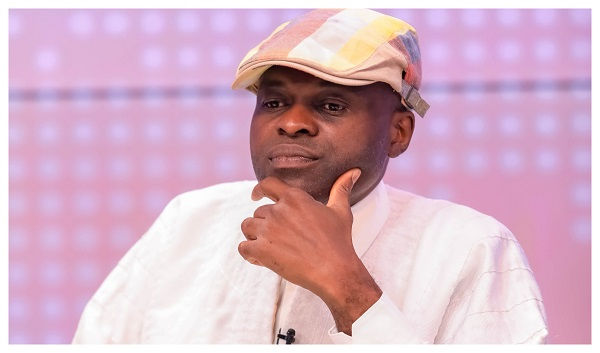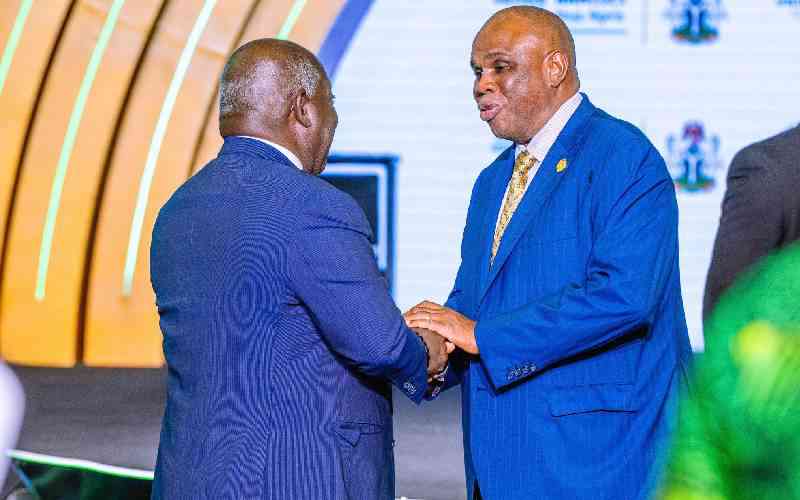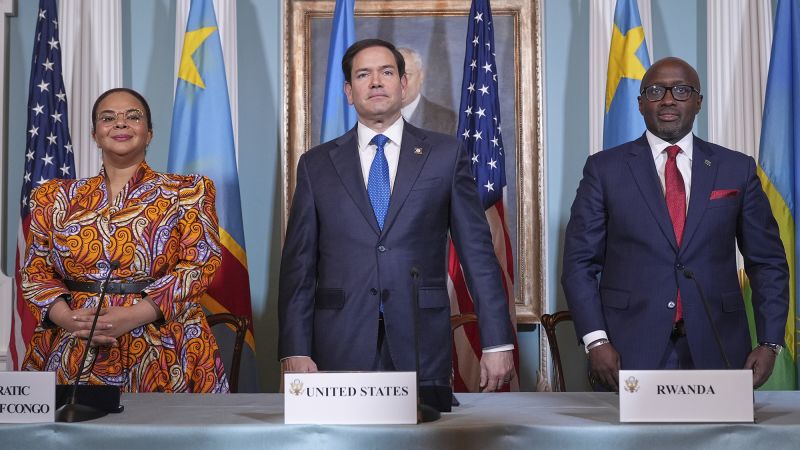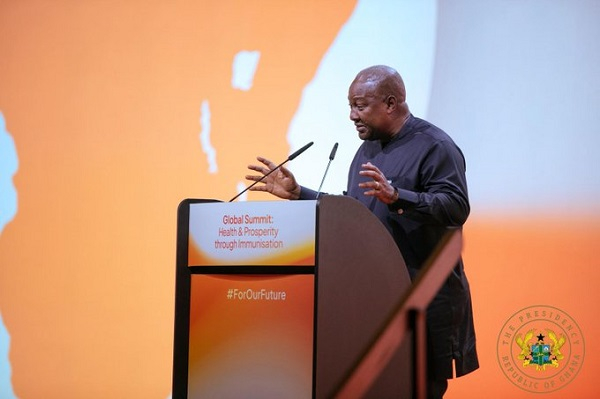African entrepreneurs call for smarter investment in energy access - BusinessGhana
Entrepreneurs and clean energy leaders from across Africa gathered in London this week for Financing Africa's Clean Energy Innovators, a dynamic showcase of the people and ideas transforming energy access for communities left behind by traditional systems.
Held during London Climate Action Week, organised by climate solutions charity, Ashden, and hosted by BBC World Service 'People Fixing the World' presenter Myra Anubi, the event spotlighted innovators supported by Ashden's Powering Clean Energy Investment programme—entrepreneurs driving change through solar technology, e-mobility, clean cooking and mini-grids.
Speakers made an urgent call for patient capital and long-term investment to reach the frontline of energy access.
Keynote Speaker Rachel Kyte, UK Special Representative for Climate, said: "One of the original drivers behind the Paris climate agreement was to provide clean, affordable and reliable energy for everyone. And the great news is that this technology is within our reach. It is financially within our reach. It is politically within our reach. We've just got a get a little bit better organised in order to be able to do it."
Calling for a fairer international financial architecture, she continued. "In many countries, the financial markets are not deep enough, liquid enough and broad enough. And so there is important structural work that we as the UK will increase and have to be involved in. But don't ever give up on the idea that this is entirely, entirely, entirely achievable... When clean, affordable, reliable electricity comes to a village, it transforms everything."
The event highlighted innovators delivering impact in communities across the continent, all of which have been Ashden Award winners or finalists over recent years:
Buradum Geteh, CEO of solar installer Burasolutions in Nigeria, said: "The deadliest thing in Nigerian Hospitals is not malaria, it's not typhoid, and it's not even COVID 19. It's darkness. I can't forget what a nurse told me four years ago at Bori Zonal Hospital in Southern Nigeria. She said, "We give birth to babies with the help of candlelight and prayers.
"Today, we are scaling solar for healthcare and rural communities. We have conducted feasibility studies at multiple sites in Nigeria. We have over 270 sites in our project pipeline, where we want to design solar solutions that will meet their energy demand... Let's transform candlelight and prayers into sustainable power."
Claire Bakhita, Projects & Development Manager at GOGO Electric in Uganda, shared how electric-motorbikes are creating green jobs and income. For people like Tony, one of Uganda's 1.5 million motorcycle taxi drivers who was struggling to make a living, converting to a GOGO Electric motorbike resulted in 40% more money in his pocket, and within a few months, allowed him to save nearly a million Ugandan shillings – about £250 – enough to pay school fees for his daughter Sarah.
"When we centre people at the heart of the clean energy transition, we don't just fight climate change, we create a ripple throughout the community," said Ms Bakhita.
Sandra Chukwudozie, CEO of Salpha Energy in Nigeria, reflected on her journey, starting her business as a young solar entrepreneur and realising that her mission was to disrupt the supply chains that prevent the value of the solar revolution from being realized in the communities that Salpha Energy powers.
"So my mission was not just to distribute solar solutions, but to lay down the supply chain in Nigeria. Several of us young people had been told 'no you can't do this'. So we built our foundation – we started with distribution, brought in partners, then tackled financing and brought in microfinance banks. In the end we built an organisation that has to date powered the lives of 200m people.
"The biggest achievement for me is that we've slashed the cost of solar in Nigeria. Innovation and passion are the tools you need to change the world."
Jodie Wu, CEO of OffGridBox, an solar energy and water purification company which powers healthcare across Eastern Africa, pointed to missed opportunities:
"In the last decade alone, we've seen over $1.3 trillion invested in solar energy. Yet, less than 0.1% of that has reached the frontline health clinics that need it most.
"Imagine if more than half of you in this room did not have access to a healthcare facility with reliable electricity - you're mid-surgery, and the lights go out. Or your elderly parent is in intensive care, and the oxygen machines go silent. Or your premature newborn is in the next room, and the heaters go off. This is the reality for over 600 million people living in sub-Saharan Africa.
Many donors have funded solar installations for health centres, but failed to invest in operations and maintenance, meaning systems breakdown, leaving "clean tech graveyards" and damaging expensive biomedical equipment. OffGridBox have a business model whereby clinics can pay for system installation, operation and maintenance for a small monthly fee of $50-$300 – saving them money and ensuring reliable solar power which will last for decades. "Let's stop asking if we should invest in powering essential health services , and let's fund the model that's already doing it."
Lisa Mare, Project Coordinator at Mobility for Africa in Zimbabwe, highlighted how electric tricycles are transforming the lives of rural women and their families: Motorbikes are usually the transport of choice, but are limited in what can be carried. "For people like Sekai who has a big bag of produce and a baby on her back, a motorbike isn't going to work.
"Sekai used to live on less than a dollar a day. Now, she makes anywhere from $80 to $150 in a week – how transformative is that? For Mobility for Africa, getting a tricycle to Sekai doesn't just empower her as an individual - empowers her family, her community and the region at large."
At the moment Mobility for Africa have a fleet of 300 tricycles, spanning across five geographical locations and cannot keep up with the demand. "We've got a waiting list with over 2,000 individuals, spanning across 22 geographical locations. It's our dream to get each and every one of those people a tricycle."
How can barriers to investment be reduced?
The panel discussion explored barriers to investment—including currency risk, market fragmentation, and restrictive regulations—and the tools that can overcome them, from local currency loans to results-based financing.
The Global Energy Alliance for People and Planet's Chief Investment Officer Agnes Dasewicz shared lessons from supporting 170 projects in 11 countries:
"There are billions of dollars flowing to energy investment but only a fifth to emerging markets—and a smaller percentage to groups like these we've heard about today," she said.
"Capital systems haven't been formed to support these smaller organisations. Countries perceive them as very risky. And a lot of the systems are very fragmented – financiers, governments, philanthropy – are all doing different things. We need is to bring these fragmented systems together to work in coherent and concerted efforts for universal sustainable energy access," she explained.
Closing the event, Ashden's CEO Ashok Sinha made a clear call for scale and solidarity:
"We have just five years to go to achieve the UN Sustainable Development Goals, particularly Goal 7 – universal sustainable and affordable energy access. We need innovation, creativity, but more than anything we need to scale the proven solutions. That's what Ashden has been doing for 25 years. Together we must form partnerships and collaborations that will transform this agenda."










